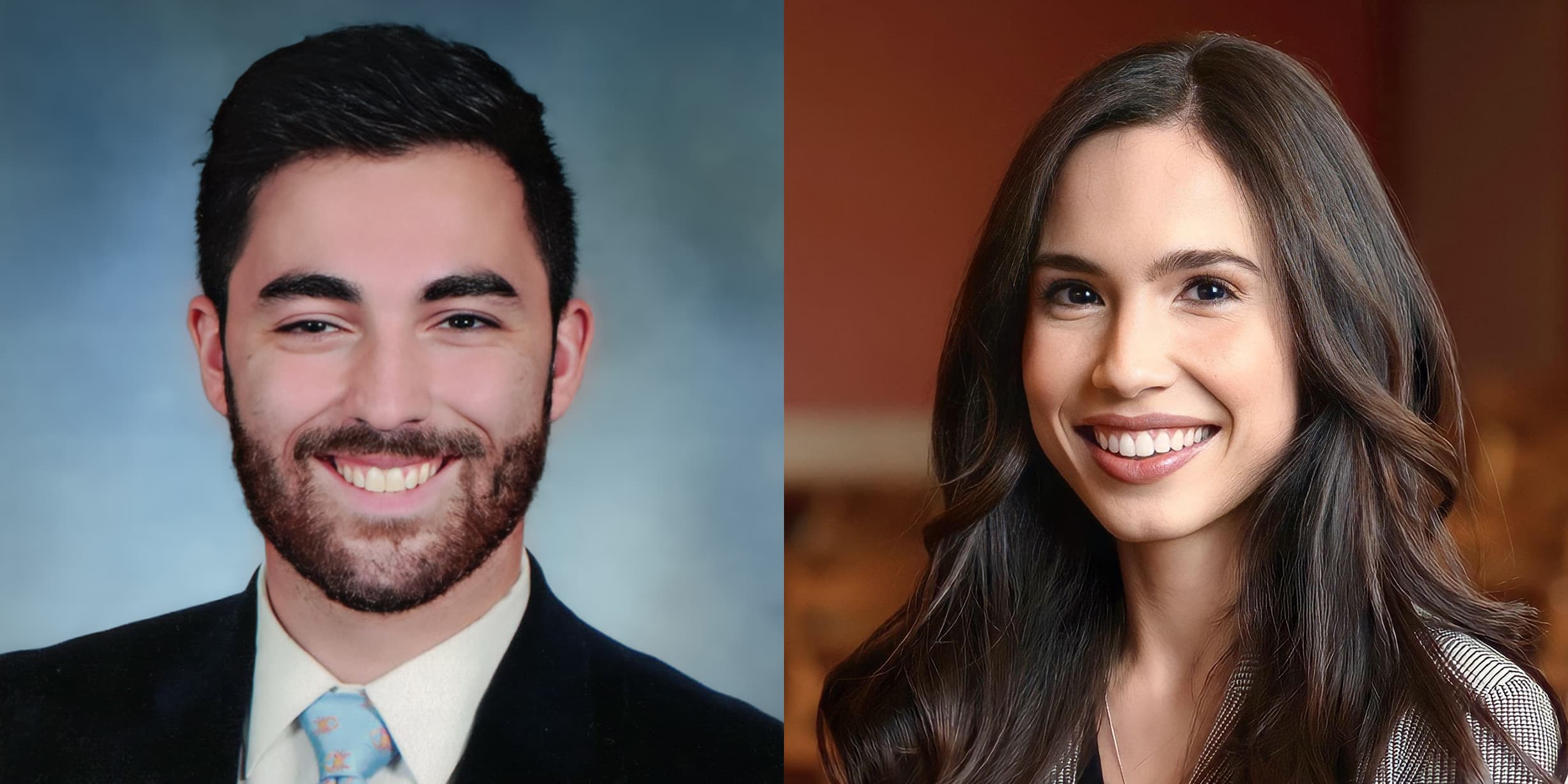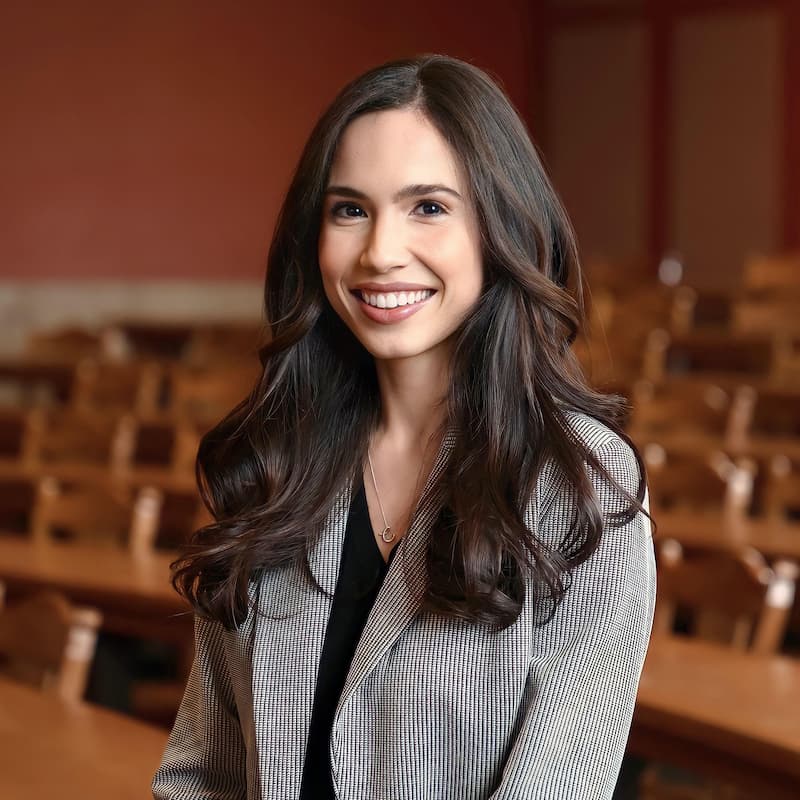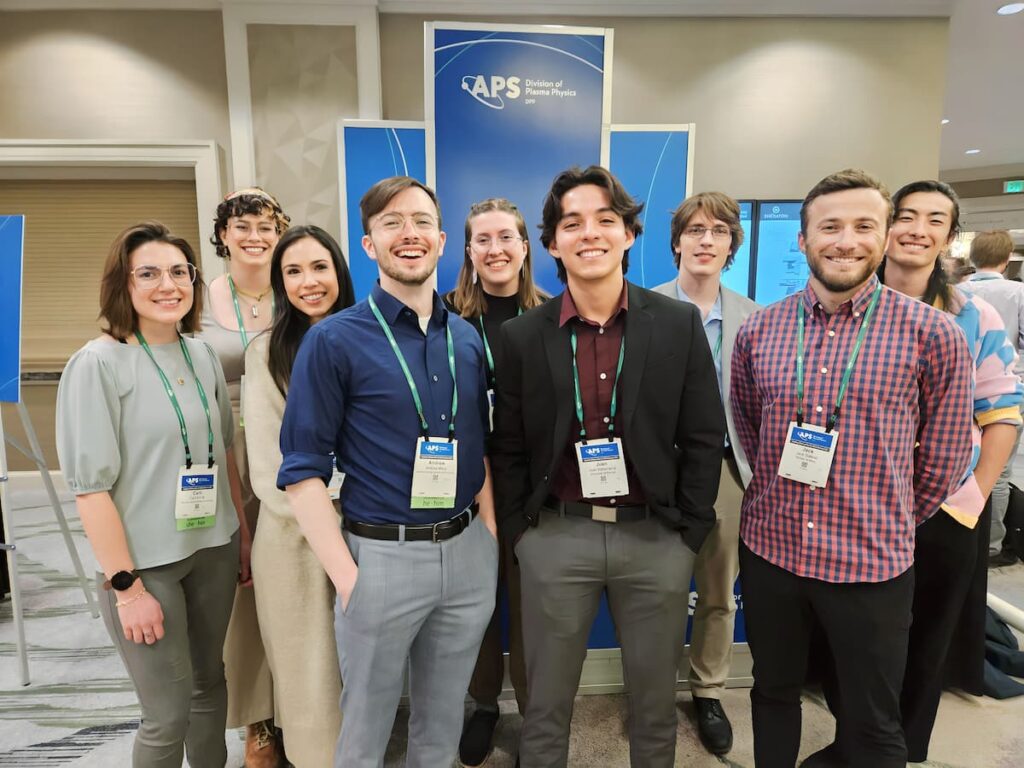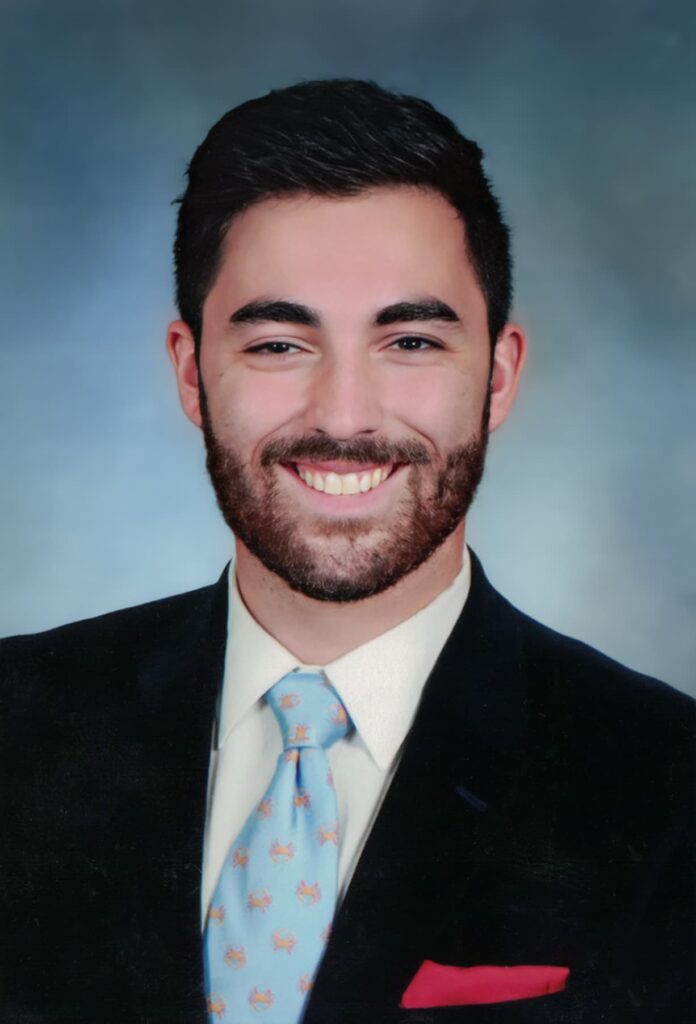
Graduate students Carolina Vazquez and Sebastian Lecha explore community engagement in fusion and fission spaces
Vazquez and Lecha are actively involved in policy-relevant research, exploring community engagement in fusion and fission spaces.

Vazquez and Lecha are actively involved in policy-relevant research, exploring community engagement in fusion and fission spaces.
Carolina Vazquez and Sebastian Lecha, who have been collaborating with NERS and Fastest Path to Zero Initiative professor Aditi Verma, both recently participated in student delegations. Carolina, a NERS Master’s student, earned her place in the Fusion delegation, a coveted opportunity that showcased her dedication to the field. Sebastian, a NERS PhD candidate, traveled to the UAE in November to participate in the Convention on Climate Change (COP28).
Carolina and Sebastian engaged in research endeavors with Verma that held policy relevance. Their work delved into understanding how researchers and practitioners in the fusion and fission spaces respectively approached community engagement within the realm of technology development. This insightful exploration not only showcased their academic prowess but also highlighted their commitment to bridging the gap between scientific innovation and community involvement.

The Fusion Student Delegation (FuSD) was a new program inspired by the Nuclear Engineering Student Delegation, which had been advocating for nuclear energy for 30 years. The goal of the FuSD was to increase advocacy and visibility for fusion energy in the federal government. As a student delegate, Carolina collaborated with other delegates to write a policy report. She was also in DC where she discussed fusion energy and potential challenges with lawmakers, government officials, and policy experts.
Earlier this month, at the American Physical Society Division of Plasma Physics Conference, Carolina presented a project (Socio-Technical Analysis of Fusion Energy Systems) that she was currently working on with Verma and researchers at the University of Wisconsin and Arizona State University. She had been engaging with experts in the fusion energy community, including physicists, scientists, lawyers, and professors, and assessing how they perceived certain challenges facing fusion energy. The topics covered in these conversations ranged from safety and environment, economic competitiveness, community and stakeholder engagement, serving vulnerable populations, recruiting a diverse workforce, and any design or policy recommendations the participants may have for fusion companies.

In the near future, Carolina will also be speaking with fusion energy companies and assessing how they were facing these challenges. The goal of the project is to identify opportunities for community input in the process of fusion energy technology design. Ultimately, the team aimed to develop co-design sessions with host communities of fusion energy technologies and the developers.

The Conference of Parties (COP) is the annual negotiation held under the United Nations Framework Convention on Climate Change (UNFCCC). It is an international gathering of representatives from 195 countries who meet to decide policies vital to the health of our planet under the looming threat of climate change. COP 28 convened from November 30 to December 12 in Dubai, United Arab Emirates.
Since the University attained observer status in 2009, students and faculty had attended the COP as observer delegates. Through Climate Blue, a University student organization whose goal is to engage in climate action, NERS student Sebastian Lecha had been selected as one of 12 delegates for the 2023 conference.
“Our mission is to unite, educate, and empower our members, U-M students, and Michigan citizens by making them more knowledgeable about climate change science, policy (both domestic and international), and its impacts on our community,” said Sebastian.
“We did this, first, through our internet presence with our website, blog, e-mail listserv, Facebook, and Twitter in which the public is directly tied to our delegation’s voices on the ground of the conference,” Sebastian continued. “Second, we planned and ran symposia to summarize the events of the conference for our community, bring together experts in the field to answer questions and highlight opportunities for interested citizens to get involved. Third, we ran outreach events to prepare students who could become tomorrow’s delegation. I joined the events group and focused on the planning of events when the delegates returned from COP 28. Beyond that, I hoped to get a greater understanding of international energy policies and the mechanisms that create them.”
As part of his doctoral research, Sebastian worked on a DOE-funded project that sought to develop novel approaches for co-designing interim spent fuel storage facilities in collaboration with potential host communities. This work was done in collaboration with Oklahoma University, the University of Wisconsin, and New Mexico State University.
Extending this work to the energy technology realm, Sebastian interviewed fission, hydrogen, and CCUS technologies developers to explore whether and how these technology developers engaged with communities as part of their design and development processes.
Under the mentorship of Verma, these students not only honed their research skills but also actively contributed to the broader scientific community.
“The research and policy engagement work that Sebastian and Carolina were doing is both timely and essential,” said Verma. “As we contemplate the wide-scale deployment of fission, and eventually, fusion energy systems, it is essential that we do so by engaging with and building consent across multiple scales of society – this includes the potential host communities who might one day host these facilities, as well as citizens at the state and national level. Input and perspectives from across these scales should inform both technology design and policy decisions. The work that Carolina and Sebastian were doing will help us reimagine the technology design and development process in a nuclear context with potentially far-reaching implications for other energy sectors as well.”